Introduction - Ford Puma Gen-E
It’s been a long time coming, the electric Ford Puma. We’ve known about it for years, and have been waiting for this extravagant new electric take on the Puma which is – let’s not downplay the importance, here – the best-selling car in the UK. This is a really critical car for Ford.
So, I guess on the one hand it’s great that this looks just like the Puma that we know and love. Don’t fix it if it ain’t broken, and all that. But on the other hand, it’s disappointing that it’s taken so flipping long to get us an electric Puma that looks, well just like the Puma but with this flush, grille-less fascia. What’s taken so long, Ford? ‘Cause it’s not the design!
The Ford Puma is 4.2-metres long, 1.9-metres wide (with the mirrors) and is 1.55m tall, which means that it splits the difference between smaller cars like the Citroen e-C3 and family cars like the VW ID.3. Obviously, it’s technically a small SUV as it’s got that swoopy, chunky SUV-ish styling, although it feels more hatchback-like when you sit in it.
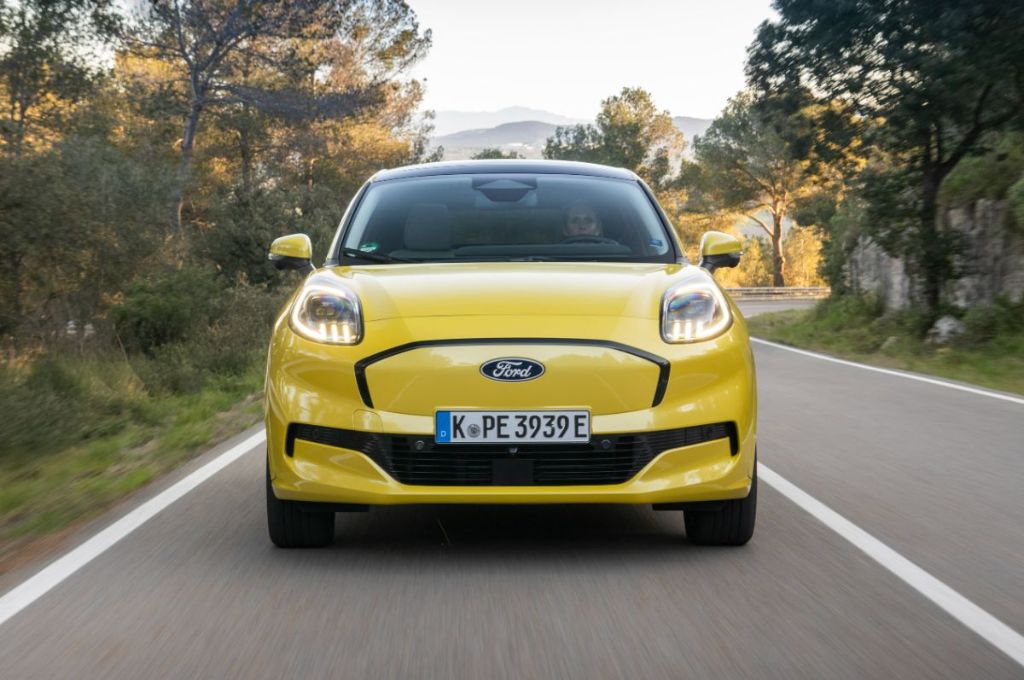
Range, Battery and Charging
Underneath this new Puma Gen-E is a 43kWh lithium-ion NMC battery that’s good for an official WLTP range of up to 233 miles. That suggests great efficiency for the Puma, and the good news is that it lives up to that in the real world, too. For some context, the Puma’s direct rival – the Skoda Elroq and Jeep Avenger both offer similar WLTP range yet have much bigger battery capacities of over 50kWh, so Ford is doing very well on the efficiency front!
I drove it on a pretty fast route through Spanish mountains and motorways (I know, it’s a tough job but someone’s got to do it…) and got 4.4 miles/kWh. That’s a real-world range of 190 miles despite it being a fast route with the air-con working hard, and a journo friend of mine on the same event saw 5.0 mile/kWh on a more moderate route – equivalent to a range of nearly 215 miles. That’s very impressive for such a modest battery size. Expect a winter range of more like 150 miles, especially as the Puma doesn’t get a heat pump.
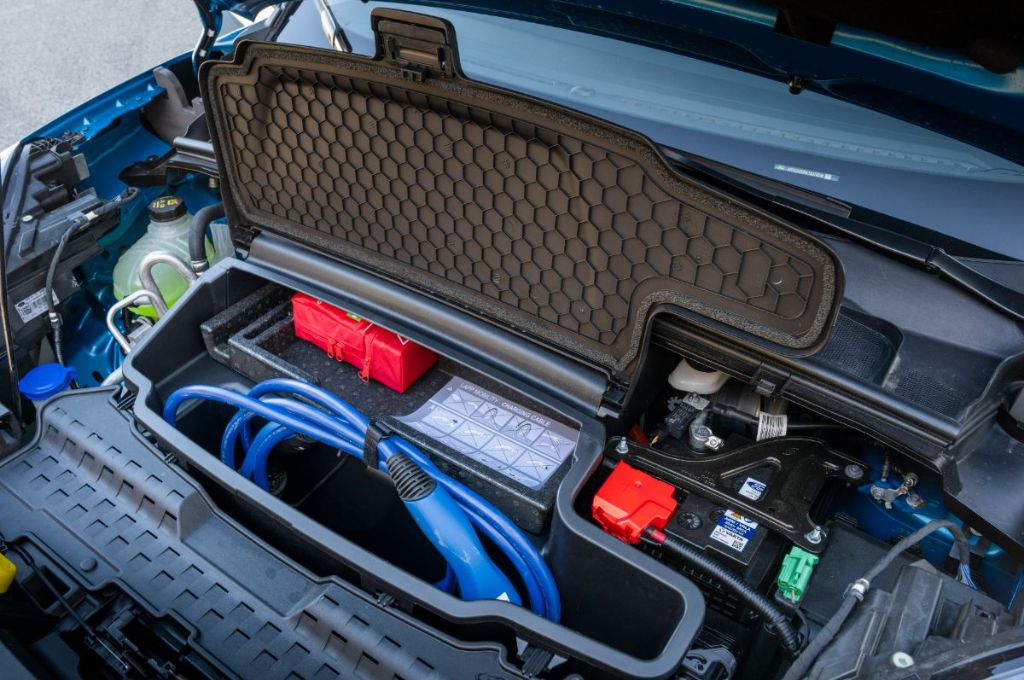
You also get 100kW DC rapid charging, so the Puma can manage a 10-80% top-up in as little as 23 minutes, which is on a par with other compact electric SUVs that are a similar size to the 4.2-metre long Puma. That includes the Jeep Avenger that I just mentioned, but there’s also the Hyundai Kona, MG4, Smart #1, Volvo EX-30. There are even some more hatchback-ey alternatives like the Renault 5 and Citroen e-C3 Aircross, so it’s got loads of competition!
A full charge from a 7kW home charger will take around eight hours. Unfortunately there’s no vehicle-to-load (V2L) charging with the Puma, so if that’s something you’re keen on having you’ll want to consider an MG, Kia or Hyundai.
Practicality and Boot Space
Boot space is one of the Puma’s party tricks. It’s huge! Don’t forget that the Puma is smaller than the VW ID.3, which gets a 385-litre boot, yet the Ford has a whopping 523 litres! Mind you, 145 of those litres are in what Ford calls the ‘GigaBox’, and what the rest of us call ‘underfloor space’. Even so, well done, Ford - that really is a useful boot and easily one of the biggest of its direct rivals – only the Skoda Elroq gets close, and that’s a slightly bigger car. The GigaBox is also a practical, waterproof box with a plug in it, so you could even use it as an ice bath for your beers when you’re out camping, or you can hose out all the mud that’s accumulated from the dirty wellies that you keep in there. Or, just don’t use the waterproof bit and keep your cables in there instead, as the small frunk requires some quite convoluted cable tidying – and even then it’ll only take one tightly coiled cable.
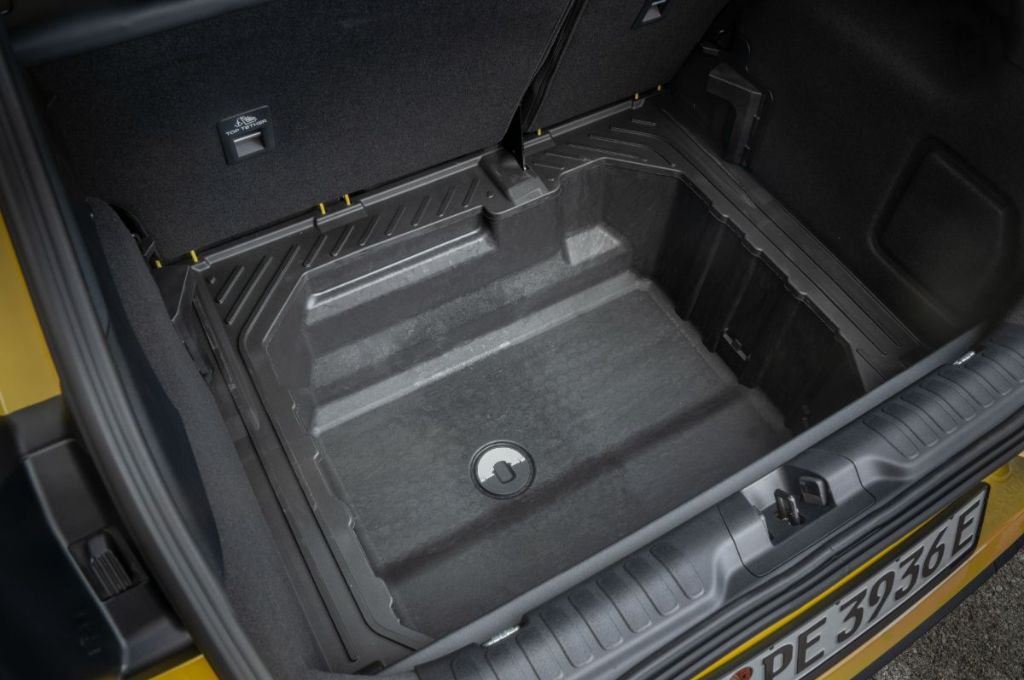
It's worth noting that the Ford Puma Gen-E can tow up to 750kg, and can obviously be configured with a factory-fit tow bar, which is very useful for rear-mounted bike carriers as well as for towing a light trailer.
It’s no surprise that the Puma Gen-E is, er, very much like the petrol Ford Puma that it shares a platform with. That means decent space for a couple of average-sized adults or bulky car seats, although you’ll have better head- and legroom room in the MGS5, Kia EV3 and Skoda Elroq.
Interior, Design/Styling and Technology
Up front the Gen-E does get some changes. A new two-tone interior adds bit more interest, not to mention the digital display behind the wheel, which looks very similar to the one in the Explorer – and I actually like that, as it’s very simple and you can just have it showing your speed rather than a million different things.
The driving position is good, and if you go for the posh Ford Puma Gen-E Premium, and you even get a Bang and Olufsen sound system. Fancy! Mind you, heated seats are a £350 option, which is annoying.
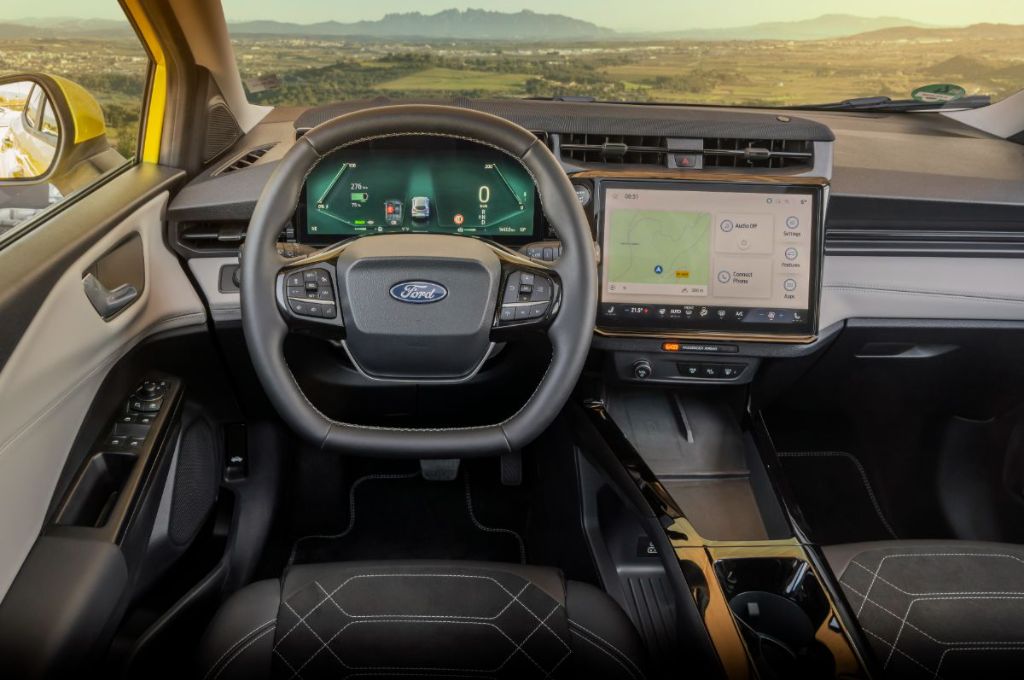
The new 12.0-inch touchscreen and SYNC-4 software is one of the big upgrades for the 2025 Ford Puma Gen-E. It includes wireless Apple CarPlay and Android Auto, as well as in-built nav that’ll automatically pre-heat the battery for faster charging provided you’ve got the charging stop set as your destination.
Check out the used electric Fords for sale on Electrifying.com
There’s even Amazon Alexa voice control and over-the-air software updates. It’s not the best touchscreen system out there, but the graphics are okay and it’s generally easy to control the key features. The temperature controls are always visible on the bottom of the screen, too, even if they’re a bit small and fiddly to use while you’re driving. It feels a bit basic next to OLED systems like the one you get in the Mini Countryman, but the Ford’s touchscreen does the job, just fine.
Motors, Performance and Handling
The Puma Gen-E is a really fun little thing to drive. It’s front-wheel drive, and does 0-62mph in 8.0 seconds thanks to its 165bhp electric motor, but those figures don’t do justice to the way it razzes through corners with real gusto, and feels more keen than most of its rivals. Despite that, it’s also pretty comfy. The suspension’s firmer than the Elroq or Citroen e-C3 Aircross, but it’s still really nicely setup to take the sting out of bumps and ruts. Basically, you’re going to enjoy swinging it round roundabouts and winding down a good road, but it’s also settled, quiet and confident for when you just want to get the groceries home without incident.
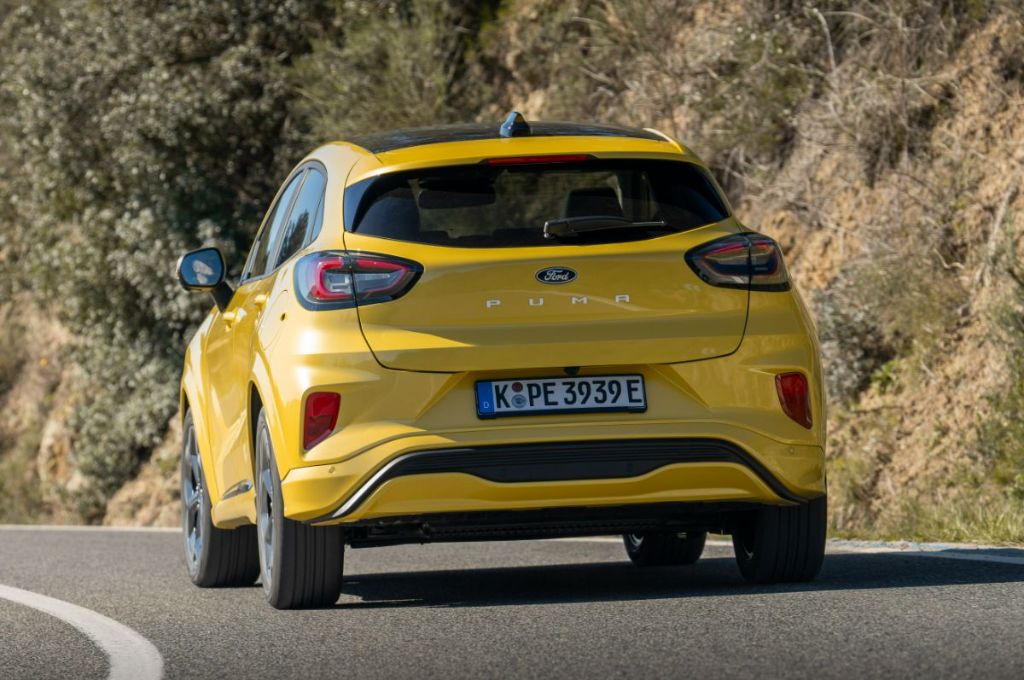
Brake regen’ on the Puma isn’t adaptive, like it is on the Kia EV3, and it’s pretty mild and unobtrusive so you won’t really notice it very much even if it’s your first time in an electric car. However, you can put it in one pedal mode, when you get much heavier brake regen’ and barely need to use the brake pedal at all. In that setting, the Ford’s regen’ system is a bit grabby and needs quite a bit of getting used to, so that’s not ideal. It's much easier to drive the Gen-E smoothly with it off!
Price and equipment
The electric Puma range starts with the Gen-E Select, at £29,995, or the top-spec Premium costs £2,000 more. Even the entry-level Puma Gen-E gets adjustable lumbar support for the driver, Alexa voice control, heated door mirrors, auto lights and wipers, and wireless phone charging, so it’s not badly equipped. The Premium model adds keyless entry, bigger wheels and a Bang and Olufsen audio. Annoyingly, you have to add a Winter Pack to get heated seats on either of the Puma Gen-E models.

Monthly PCP costs are from around £350 with a £5,000 deposit, but I’m hoping that’ll drop a bit after the initial launch excitement, as it’s a bit pricey next to the lower monthly costs on some alternatives. Mind you, Ford’s new ‘Power Promise’ really sweetens the deal, as it means the Gen-E also gets five year’s free servicing, 10,000 miles of charging costs covered, and a free home charger, all thrown in as standard. That’s a proper bargain, even if it’s worth pointing out that Ford still only offers a three-year, 60,000 mile standard vehicle warranty – a way off what you get with Kia, Hyundai, MG and Toyota. The Ford’s battery is covered for eight years and 100,000 miles.
Talking of monthly costs and great deals, don’t forget to check out the latest Electrifying.com lease and finance bargains, for the best value monthly offers right now.
Verdict
The Puma Gen-E is just what Ford needs to boost its presence in the electric car classes, and it’s also just what consumers are after right now; a sensible, fun, versatile and efficient small electric car that people feel familiar with. It's not groundbreaking, and it’s got tons of competition, but this is one of the most fun electric family cars to drive, and it’s one of the most practical. I think some buyers will be put off by the small battery and slightly lower range than is offered on some rival electric cars, but as long as you’re happy with a real world range of 150- to 220 miles then the Puma really is a great family EV.




































